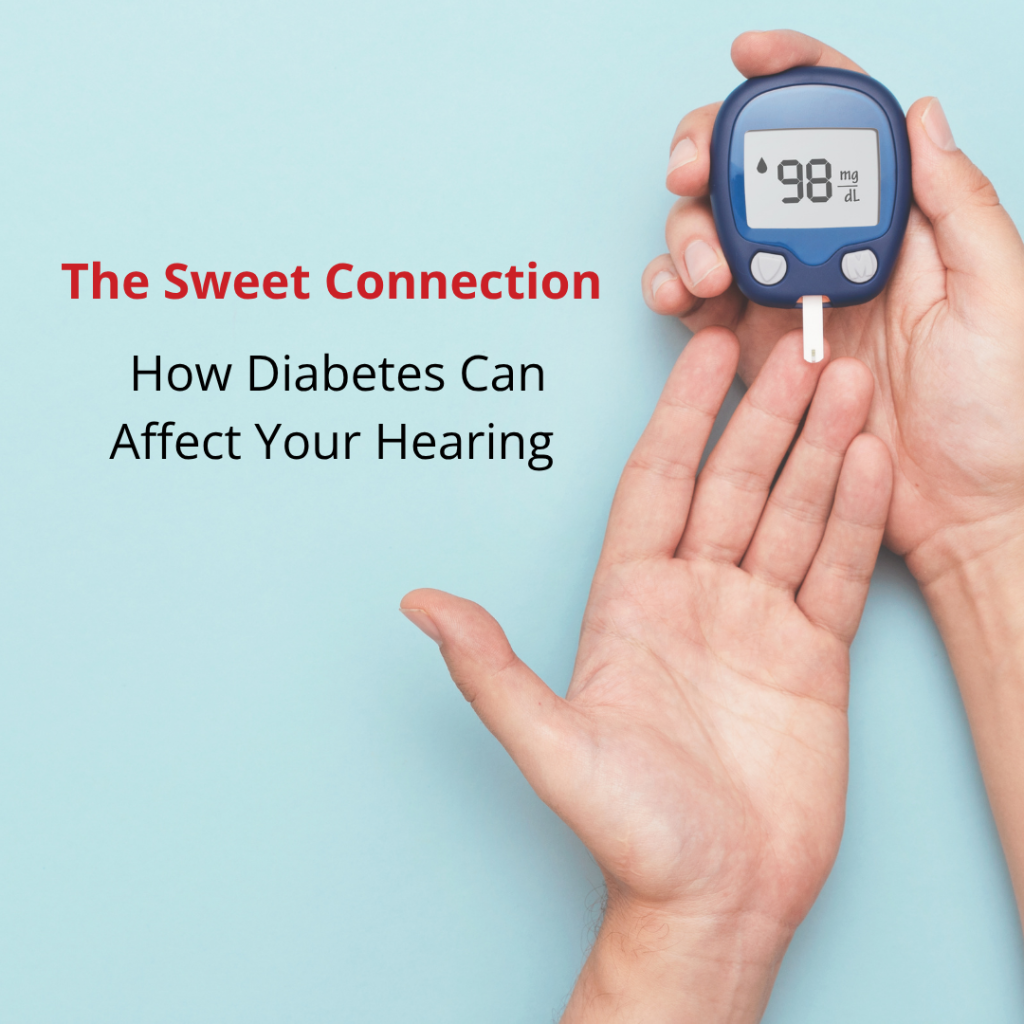
When most people think of diabetes, they picture blood sugar, insulin, and maybe feet or eyes. But your ears? Yes—your hearing can also feel the effects of diabetes. According to The Audiology Project, a national health initiative focused on the link between chronic diseases and hearing, people with diabetes are twice as likely to experience hearing loss as those without it. Here’s how the two are connected, what you can do about it, and why hearing care should be part of every diabetic’s health plan.
How Diabetes Affects the Ear
Your inner ear is home to some of the most delicate cells and blood vessels in your body. They convert sound waves into signals that your brain can understand. When blood sugar levels run high, those tiny vessels and nerves can become damaged—similar to what happens in the eyes or kidneys. Over time, that damage can make it harder for your ears to pick up sounds clearly, especially high-pitched ones. This kind of damage is called sensorineural hearing loss, and it’s the most common type linked to diabetes.
What the Research Shows
Research summarized by The Audiology Project shows that:
– Hearing loss is about twice as common in people with diabetes.
– Even those with prediabetes, or slightly elevated blood sugar, can show early hearing changes.
– The loss often affects high frequencies first, such as birds chirping, children’s voices, or consonant sounds like “s” and “f.”
– Both inner ear cells and auditory nerves can be affected, not just one or the other.
Some studies even suggest that diabetes can make hearing loss occur earlier in life, as if the ears are aging faster.
Why Diabetes Affects Hearing
There’s no single cause, but several factors seem to play a role:
1. Blood vessel changes – High blood sugar harms the tiny vessels that feed the inner ear.
2. Nerve damage – The same neuropathy that can cause tingling in your feet may also affect hearing nerves.
3. Inflammation and oxidative stress – Chronic high glucose can produce compounds that damage tissue throughout the body, including the ears.
4. Noise and medication sensitivity – Diabetes can make ears more vulnerable to loud sounds and certain medications that can harm hearing.
Balance and Diabetes
Your inner ear isn’t just for hearing—it’s also the center for balance, the sensory organ of your “vestibular” system. People with diabetes are more likely to experience dizziness and falls, partly because nerve damage and poor circulation affect both feet and ears.
Why It Matters
Untreated hearing loss can lead to much more than missed conversations. It can make it harder to communicate with healthcare providers, increase the risk of falls, and contribute to social isolation or cognitive decline. That’s why The Audiology Project encourages collaboration between diabetes educators, physicians, and audiologists so that hearing care becomes a standard part of diabetes management.
What You Can Do
Here are simple, practical steps that can make a big difference:
– Get a baseline hearing test when you are diagnosed with diabetes.
– Have your hearing re-checked every one to two years.
– Keep blood sugar, blood pressure, and cholesterol within recommended ranges.
– Protect your ears from loud noise.
– Report ringing in the ears, dizziness, or new hearing difficulties as soon as you notice them.
– Ask your doctor about medications that may affect hearing, especially if you already have diabetes.
A Simple Way to Think About It
Your inner ear is like a small, delicate garden. It needs clean water, balanced nutrients, and gentle care. When blood sugar levels stay high, the “water” becomes sticky and the irrigation system clogs. Add too much noise or certain medications, and those tiny plants—the sensory hair cells—struggle to survive. Good diabetes control keeps that garden healthy and helps preserve your hearing over time.
What to do about it
The connection between diabetes and hearing loss is real, but it’s not hopeless. With routine hearing checks, careful blood sugar management, and healthy lifestyle habits, you can protect both your hearing and your balance. At your next medical visit, if your care team doesn’t ask you, ask them: “When was my last hearing test?” Your ears will thank you. And if you have hearing loss, maintain neural stimulation along the VIII Cranial Nerve (auditory and vistibular nerve) and the entire auditory tract and your cortex by wearing hearing aids that will slow down or stop nerve decline while also allowing you to hear better. Hearing aids are both preventative for the future and beneficial now.
If you have diabetes, call us!
Sources: The Audiology Project, CDC, ADA, and peer-reviewed research summarized by TAP.
